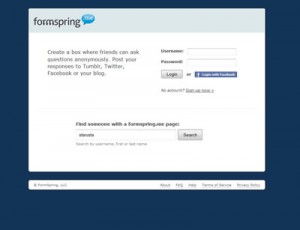
A community reeling from the suicide of a popular high school senior turned its sorrow to outrage March 26 over a practice known as “trolling,” in which derogatory, hurtful comments are posted online against a person.
In this instance, a tribute site created for Alexis Pilkington, 17, of West Islip High School in New York was the target of insulting messages after her death.
“I think it’s horrible. It’s vicious. It’s cruel. It upsets me as a parent,” Lorraine Kolar said as she left a memorial service for Pilkington.
Classmates, relatives, and friends were incensed over what they called creepy, insensitive messages about Pilkington, many posted anonymously and also appearing on other internet sites since her death.
“It’s a disgrace,” said Cathi Musemeci, a close friend of the family. “I think it’s horrible. Let the girl die in peace.”
“Trolling is part of the dark side of cyberspace,” said Anne Collier, co-director of the Salt Lake City-based Connectsafely.org, a forum about safety issues on the internet and social web sites.
“It’s not necessarily tied to any school activity,” she said. “It’s quite anonymous and random and is usually seen as aggressive, egregious cruelty on the internet. The people who sit behind computers and do this are known as trolls.”
Pilkington received harassing internet messages even before she killed herself March 21. Her parents and other relatives insist she had been troubled for some time. They don’t believe the messages were a major factor in her death.
“It had nothing to do with that,” said Musemeci. “Lexi was in a lot of pain. She was hurting.”
Still, Formspring.me—a social networking site that was flooded with mean-spirited messages and graphic images—has been the target of much of the town’s anger.
About two dozen West Islip High School students sported white T-shirts March 26 painted with neon green and orange lettering declaring “Boycott Formspring and gathered petitions outside the school.
“We just want it off the internet,” said organizer Billy Crawford, a West Islip senior. “If you have anything to say to somebody, there’s no reason you shouldn’t say it to their face.”
A Formspring spokeswoman said the company has changed its service in response to the incident. Users now can decide whether to decline anonymous questions or allow them. They also can opt to allow them only from a user who is logged into the system, said spokeswoman Margit Wennmachers.
Some Facebook postings, which are not anonymous, also came under scrutiny for negative comments posted about the girl after her death. Facebook spokesman Andrew Noyes said the company does not condone cyber bullying, and he said Facebook would disable accounts that are found to be intimidating others.
Frank Stallone, deputy chief of detectives for the Suffolk police, said the department’s computer crimes unit was investigating. He said it is often difficult to prosecute such cases, though.
“Sometimes being offensive or crude doesn’t always amount to doing something illegal,” he said. Also, he added, “trolling” is difficult to prosecute, because offenders “could come from any place in the world.”
Stallone said that unless a Pilkington family member files a complaint, the police cannot do much.
More than 15 states have laws making cyber bullying a crime or making it easier to investigate or prosecute, according to the National Conference of State Legislatures. New York does not have such a law, although a bill has been proposed to stiffen penalties for hazing if it occurs online.
Federal legislation has been proposed that would give prosecutors the ability to punish people who use electronic means to engage in severe cyber bullying—defined as repeated, hostile, and severe communication made with an intent to harm. But lawmakers are unsure how such a law might be enforced without violating free-speech rights.
A California appeals court earlier this month ruled that threatening posts made by readers of a web site are not protected free speech, allowing a case charging the posters with hate crimes and defamation to proceed.
Note to readers:
Don’t forget to visit the Securing Student Laptops for Safe Learning resource center. Technology is an essential part of a 21st-century education for both teachers and students, and district 1-to-1 computing initiatives and laptop lending programs are on the rise. Most of the focus falls on how these mobile computers and handheld devices will help enhance teaching and learning. However, how a district manages its technology can have a significant impact on its budget. Go to:
Securing Student Laptops for Safe Learning
- ‘Buyer’s remorse’ dogging Common Core rollout - October 30, 2014
- Calif. law targets social media monitoring of students - October 2, 2014
- Elementary world language instruction - September 25, 2014


Comments are closed.